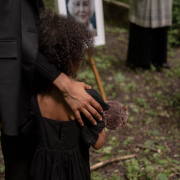Funeral Celebrants: Personalizing Ceremonies with Professional Officiants
In today’s evolving landscape of memorial services, funeral celebrants play a pivotal role in crafting ceremonies that truly reflect the essence of the deceased. These trained professionals specialize in designing personalized funeral ceremonies that honor the life, values, and beliefs of both the departed and their loved ones. Unlike traditional religious officiants, funeral celebrants offer a more tailored approach, ensuring that each service is as unique as the individual it commemorates. By focusing on personal stories and meaningful rituals, celebrants provide a compassionate and respectful farewell, making them an invaluable resource for families seeking a more personalized memorial experience.
Understanding the Role of a Funeral Celebrant
Becoming a funeral celebrant requires specific training and qualifications that equip individuals to handle the sensitive nature of memorial services. Many celebrants undergo specialized courses that cover aspects such as grief counseling, ceremony design, and public speaking. This training ensures that they can create ceremonies that are both respectful and deeply personal. By choosing a trained celebrant, you can be confident that the service will be handled with professionalism and care.
In modern funeral services, a personalized approach is increasingly important as families seek to honor their loved ones in unique ways. Traditional ceremonies often follow a set structure, which may not fully capture the essence of the deceased. Funeral celebrants, however, focus on tailoring each service to reflect the individual’s life and values. This personalized touch can provide comfort and solace to grieving families, knowing that the ceremony truly represents their loved one.
The role of a funeral celebrant differs significantly from that of traditional religious officiants. While religious leaders typically adhere to specific doctrines and rituals, celebrants offer a more flexible approach. They are not bound by religious conventions, allowing them to incorporate a wide range of elements into the ceremony. This flexibility makes celebrants an ideal choice for families who wish to include diverse cultural or spiritual elements in their funeral services.
Funeral celebrants are skilled in creating ceremonies that resonate with the family and friends of the deceased. They take the time to understand the unique stories and experiences that defined the individual’s life. By weaving these personal narratives into the service, celebrants ensure that the ceremony is a true reflection of the person being honored. This attention to detail helps create a meaningful and memorable farewell.
Choosing a funeral celebrant can greatly enhance the experience of saying goodbye to a loved one. Celebrants provide not only a personalized service but also emotional support and guidance throughout the planning process. Their expertise in crafting ceremonies that honor diverse beliefs and traditions ensures that every aspect of the service is respectful and meaningful. By opting for a celebrant, you can ensure that the funeral service is a fitting tribute to the life and legacy of the deceased.
The Process of Creating a Personalized Ceremony
The journey of crafting a personalized funeral ceremony begins with an initial consultation between the funeral celebrant and the family of the deceased. During this meeting, the celebrant takes the time to listen and understand the family’s wishes, gathering stories, anecdotes, and details that paint a vivid picture of the individual’s life. This collaborative process allows the celebrant to capture the essence of the deceased, ensuring that the ceremony is a true reflection of their personality and values. By engaging in open dialogue, you can ensure that the celebrant has a comprehensive understanding of your loved one’s life, which is crucial for creating a meaningful service.
Incorporating personal stories, music, and rituals into the ceremony is a hallmark of a funeral celebrant’s work. These elements are carefully selected to resonate with the family and friends in attendance, providing comfort and a sense of connection. Music, whether it be a favorite song or a piece that holds special significance, can evoke powerful emotions and memories. Rituals, whether traditional or newly created, offer a way to honor the deceased in a manner that feels authentic and heartfelt.
- Personal stories shared during the ceremony can highlight the unique qualities and achievements of the deceased, making the service more intimate and relatable.
- Music selections can range from classical pieces to contemporary songs, allowing for a diverse and personalized auditory experience.
- Rituals can be adapted or created to reflect the cultural or spiritual beliefs of the deceased, providing a sense of continuity and respect.
- The celebrant’s ability to weave these elements together ensures a cohesive and meaningful ceremony.
- Flexibility in the ceremony’s structure allows for creativity, making each service distinct and memorable.
The flexibility and creativity allowed in non-traditional settings are significant advantages of working with a funeral celebrant. Unlike traditional services that may be confined to specific venues or formats, celebrants can conduct ceremonies in a variety of locations, from gardens to community halls, or even in the comfort of a family home. This adaptability ensures that the setting itself can be a meaningful part of the farewell, perhaps a place that held special significance to the deceased. By choosing a location that resonates with your loved one’s life, you can create an atmosphere that enhances the personal nature of the ceremony.
Ultimately, the process of creating a personalized ceremony with a funeral celebrant is about honoring the individuality of the deceased while providing solace to those left behind. The celebrant’s role is to guide you through this journey, offering support and expertise to ensure that every aspect of the service is thoughtfully considered. By focusing on the unique stories and experiences that defined your loved one’s life, the celebrant helps to create a ceremony that is not only a farewell but a celebration of a life well-lived. This approach ensures that the service is a fitting tribute, leaving a lasting impression on all who attend.
Benefits of Hiring a Funeral Celebrant
Hiring a funeral celebrant offers significant emotional support and guidance to grieving families during a challenging time. Celebrants are trained to handle the sensitive nature of memorial services, providing a compassionate presence that helps families navigate the complexities of planning a funeral. Their expertise in creating personalized ceremonies ensures that the service is not only respectful but also deeply meaningful, offering solace and comfort to those in mourning. By working closely with you, celebrants can help alleviate some of the stress associated with organizing a funeral, allowing you to focus on honoring your loved one.
One of the key advantages of hiring a funeral director is their ability to honor diverse cultural and spiritual beliefs. Unlike traditional religious officiants who may adhere to specific doctrines, celebrants offer a flexible approach that accommodates a wide range of traditions and practices. This inclusivity allows you to incorporate elements that are meaningful to your family, whether they are rooted in cultural heritage or personal spirituality. By respecting and celebrating these diverse beliefs, celebrants ensure that the ceremony is a true reflection of the deceased’s life and values.
Funeral celebrants play a crucial role in ensuring a respectful and meaningful farewell for your loved one. They take the time to understand the unique stories and experiences that defined the individual’s life, weaving these narratives into the ceremony to create a heartfelt tribute. This attention to detail helps to create a service that resonates with family and friends, providing a sense of closure and connection. By focusing on the individuality of the deceased, celebrants help to craft a ceremony that is both memorable and meaningful.
Another benefit of hiring a funeral celebrant is their ability to facilitate preplanning a funeral, which can be a valuable tool for families. Preplanning allows you to make important decisions about the ceremony in advance, reducing the burden on loved ones during a time of grief. Celebrants can guide you through this process, helping to ensure that your wishes are clearly articulated and respected. By taking the time to preplan, you can create a ceremony that truly reflects your values and preferences, providing peace of mind for both you and your family.
Ultimately, the value of a funeral celebrant lies in their ability to craft unique and meaningful ceremonies that honor the individuality of the deceased. By offering a personalized approach, celebrants help to create a service that is not only a farewell but a celebration of a life well-lived. Their expertise and compassion provide invaluable support to grieving families, ensuring that every aspect of the ceremony is thoughtfully considered. By choosing a funeral celebrant, you can be confident that the service will be a fitting tribute to your loved one’s life and legacy.
Celebrating Life with Compassionate Guidance
In choosing a funeral celebrant, you embrace a compassionate approach to honoring your loved one’s life. These professionals offer personalized ceremonies that reflect the unique essence of the deceased, providing comfort and support during a challenging time. By incorporating personal stories, music, and rituals, celebrants create meaningful farewells that resonate with diverse cultural and spiritual beliefs. Their expertise ensures a respectful and heartfelt tribute, allowing you to celebrate a life well-lived with dignity and grace.











